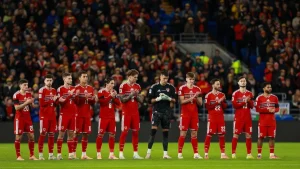Why Manchester United and Fergie Time Remain Football’s Biggest Conspiracy
Football is filled with myths, legends, and controversies, but few are as famous as “Fergie Time.” The term refers to the extra minutes often added at the end of matches during Sir Alex Ferguson’s reign as Manchester United manager. For rival fans, it became more than just stoppage time, it was a supposed advantage that United could rely on when chasing goals.
While some dismiss it as football banter, others see it as a real conspiracy. Was it coincidence, psychological pressure, or referee bias? The debate continues even years after Ferguson retired.
What Is Fergie Time?
“Fergie Time” is the phrase used when referees added what many considered to be unusually long stoppage time in Manchester United’s matches. Rival supporters believed referees extended games to give United an extra chance to score, especially at Old Trafford.
The term became famous in the 1990s and 2000s when United developed a habit of scoring late winners and turning matches around in the dying minutes.
The Psychology of Sir Alex Ferguson
Sir Alex Ferguson was not only a tactical genius but also a master of mind games. He was known for putting pressure on referees during games and in post-match interviews. Many believe referees subconsciously added extra minutes to avoid the wrath of Ferguson, who had a fiery reputation.
This psychological edge played a role in United’s dominance, creating the idea that referees were too afraid to blow the whistle against them.
Legendary Late Goals That Fueled the Myth
Some of Manchester United’s most iconic moments came during stoppage time, strengthening the “Fergie Time” conspiracy.
- 1993 vs Sheffield Wednesday: United scored twice in stoppage time to win, a key moment in their first Premier League title win.
- 1999 Champions League Final vs Bayern Munich: Teddy Sheringham and Ole Gunnar Solskjær scored in injury time to seal one of the most famous comebacks in football history.
- Countless Premier League matches: United became synonymous with late goals, making opponents nervous right until the final whistle.
Statistics and Reality Check
Studies into stoppage time have shown that United were not always given more added minutes than other teams. However, because they frequently scored late, fans linked their success to referee decisions rather than their attacking style and fitness levels.
In truth, United’s relentless pressure, attacking substitutions, and never-say-die attitude made them more likely to score late goals. But the conspiracy of “Fergie Time” stuck because it captured the imagination of rival fans.
Fergie Time’s Place in Football Culture
Even today, years after Ferguson’s retirement in 2013, “Fergie Time” remains a phrase used whenever Manchester United score late. It has become part of football folklore, representing both United’s dominance and the suspicion of referee bias.
Whether it was real or imagined, the idea of “Fergie Time” shows how powerful narratives can be in football. For some, it was an unfair advantage. For United fans, it was proof of their team’s fighting spirit.
The “Fergie Time” conspiracy is one of football’s most entertaining debates. While statistics may not fully prove referee bias, the consistent pattern of late Manchester United goals kept the myth alive. Sir Alex Ferguson’s presence, his pressure on officials, and United’s attacking mentality made the theory believable.
In the end, “Fergie Time” became more than stoppage time, it became a symbol of Manchester United’s era of dominance.
FAQs
Q1. What does Fergie Time mean in football?
A. It refers to the belief that referees added extra stoppage time in Manchester United games under Sir Alex Ferguson, giving them more chances to score.
Q2. Did referees actually favour Manchester United?
A. There is no solid proof, but Ferguson’s influence and United’s late goals made the conspiracy believable to many fans.
Q3. Why did Manchester United score so many late goals?
A. Their attacking style, fitness, substitutions, and mentality under Ferguson made them more dangerous in the final minutes.
Q4. Is Fergie Time still a thing today?
A. The term is still used by fans, but it was most associated with Ferguson’s reign. United’s late goals now don’t carry the same myth.
Q5. Which is the most famous Fergie Time moment?
A. The 1999 Champions League final comeback against Bayern Munich is the most iconic example.
Also Read- How To Create Polaroid-Style AI Photo With Cristiano Ronaldo Using Google Gemini





















